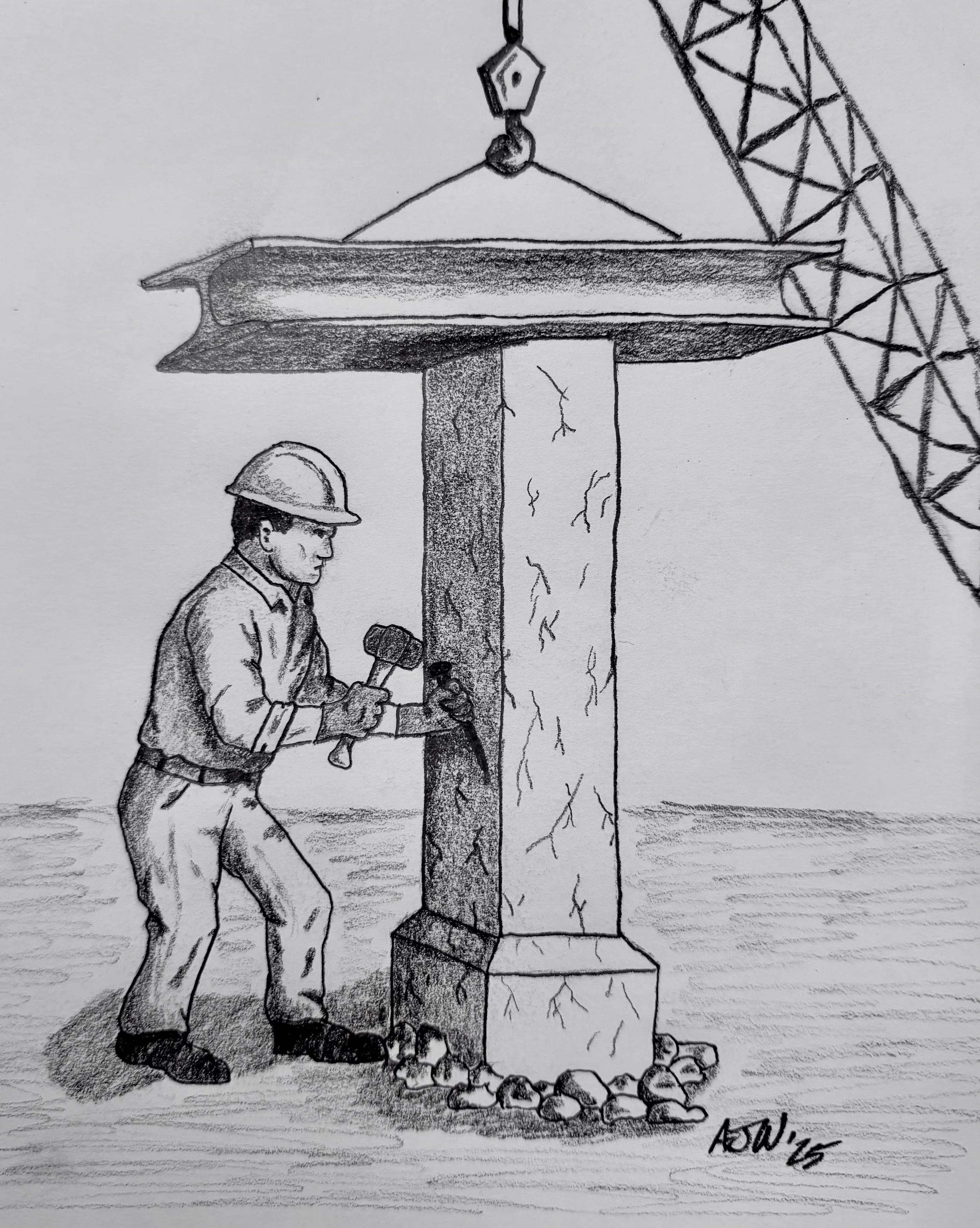Specialization Makes Champions (Until It Doesn’t)
Recently, I heard someone say something along the lines of, “Specialization leads to champions. Too many people try to do too many things and never get good enough at one thing to be compensated for it.”
As I heard it, I found myself nodding my head along in agreement. A modern-day spin on a classic Aristotle quote, “We are what we repeatedly do. Excellence, then, is not an act, but a habit.” It seemed catchy enough to be solid advice.
But the more I thought about it, the more I realized I’ve been in this spot before.
Early in my career, I thought I had it all figured out.
I’d found my lane (self-perform concrete estimating for a large GC) and I was good at it. Leaning into state-of-the-art on-screen tech, I was cranking out quantities faster than anyone else in the office. I knew the price difference of different strengths and pour rates off the top of my head like some people know their kids’ birthdays.
So, when I finally got the chance to lead my first full-building estimate, I was ready. (At least, I thought I was)
It was an eight-story hotel addition. Nothing fancy, just your typical mix of decks, columns and finishes built atop the existing parking garage. I built the budgetary estimate with a precise review of every available drawing, detail and spec.
When bid day came, we assembled a full team and went to work. We planned, developed, submitted and in the end, prayed the math was right.
Then, a few months later, I got the call: “This doesn’t make sense, we’re burning through concrete.”
Somewhere between the final revisions and my own overconfidence, we missed the note on sheet S107 that read, “Floor 7 and 8.” Seven decks in the estimate. Eight in the actual building. One floor of concrete gone, just like that.
We were lucky to have contingency built into the concrete items, but that’s not the kind of luck you brag about. Let’s just say that was an expensive lesson in humility.
The Truth: Specialization Builds Champions
There’s a reason specialists exist.
Whether it’s estimating, welding, scheduling or managing a data center program, mastery demands repetition. You don’t become great by dabbling. No, you become great by doing the same hard thing until your brain, hands and gut all speak the same language.
In construction, the best people I’ve ever met were specialists:
The ironworker who could set a beam straight by feel.
The scheduler who could sniff a critical path drift before the data showed it.
The superintendent who could walk a site and tell you exactly which subcontractor needed a conversation (and which needed a boot).
These folks didn’t become elite by accident. They became elite by repetition and specialization, by living inside their craft long enough to see nuances that outsiders never will.
And that’s something vanishing in our industry today. Something we’re desperately needing more of. People who are masters, not multitaskers.
Too many people today are trying to do too many things. They spread themselves across every buzzword, every meeting, every app. And in doing so, they never get good enough at one thing to be compensated, trusted or remembered for it.
Specialization builds champions. It earns respect. It pays bills. It separates professionals from participants.
But there’s a dark side to it too. Because when all you know is one thing, all your solutions start to look the same.
The Catch: Specialization Without Adaptability Breeds Fragility
Looking back at that early stage in my career, I was deep in my craft but narrow in my perspective. Specialization can make you a champion right up until the rules change.
And right now, construction’s rulebook is being rewritten daily.
Technology is changing. Delivery methods are changing. Owners are changing. And don’t even get me started on where AI is going. Every single one of them is shaking the foundation of what it means to be “good at your job.”
If all you’ve ever done is one thing, in one way, with one set of tools…well, eventually, you stop being great and start being outdated.
The concrete estimator who refuses to learn 3D takeoff? Outdated.
The scheduler who won’t look at AI-assisted risk prediction? Expendable.
The PM who doesn’t understand data governance? Invisible.
I’ve seen too many specialists become obsolete because they confused depth with security. Depth without adaptability isn’t strength, it’s fragility. Being the best at something only matters if the “something” is still needed.
That’s why the real winners today, the people shaping the future of our industry, aren’t just masters of one craft. They’re connectors. They’re translators. They’re the ones who can go deep when needed but also pop their heads up and see how it all fits together.
The Balance Truth: Be T-Shaped
That’s why I’ve come to believe the goal isn’t to abandon specialization; it’s to balance it.
The future belongs to those who are considered “T-shaped people.” You’ve probably heard or seen the term floating around, but it’s worth breaking down.
The vertical part of the “T” represents depth. This is your mastery, your craft, your core skill. That’s where your credibility lives.
The horizontal part is breadth. This is your ability to connect across disciplines, understand how other people’s work intersects with yours and adapt to change.
When you’re T-shaped, you don’t lose your edge but rather you sharpen it by understanding where it fits.
The best construction professionals I know today live this way. The structural engineer who understands scheduling. The superintendent who reads contracts. The estimator who knows what it means to manage risk, not just measure it. The AI developer in ConTech who’s been on a jobsite.
They’re still specialists, but they haven’t let their specialization box them in.
The New Definition of Mastery
While I understand where Aristotle is coming from, the best professionals I know today have found this balance. So now, when asked by younger professionals, I try to give them the same kind of options. Sure, go deep, but not so deep that you dig yourself into a hole.
Find your thing. Master it. Become so good at it that people trust you with their toughest problems. But while you’re there, keep your eyes open. Learn how your piece fits into the puzzle. Talk to people in the field. Walk the site. Ask questions outside your lane.
That’s where the real learning happens, in the connections between the disciplines, not just within them. To truly be successful in this industry for the long haul, you can’t just be the best at what you do. You have to understand why it matters, how it connects and who it impacts.
Construction Needs Connectors
And that’s the whole point, right there. Construction doesn’t just need specialists anymore. It needs specialists who can connect the dots. People who know their craft and can bridge to others.
So yes, specialization leads to champions. It always has. But the ones who will define the next generation of construction — the ones who will lead the digital revolution, drive sustainability and make this industry proud again — will be the T-shaped champions.
Deep in expertise. Broad in understanding.
Rooted in craft. Open to change.
Because in the end, mastery isn’t about knowing everything. It’s about knowing enough to keep learning.
Construction is cool, tell your friends!

